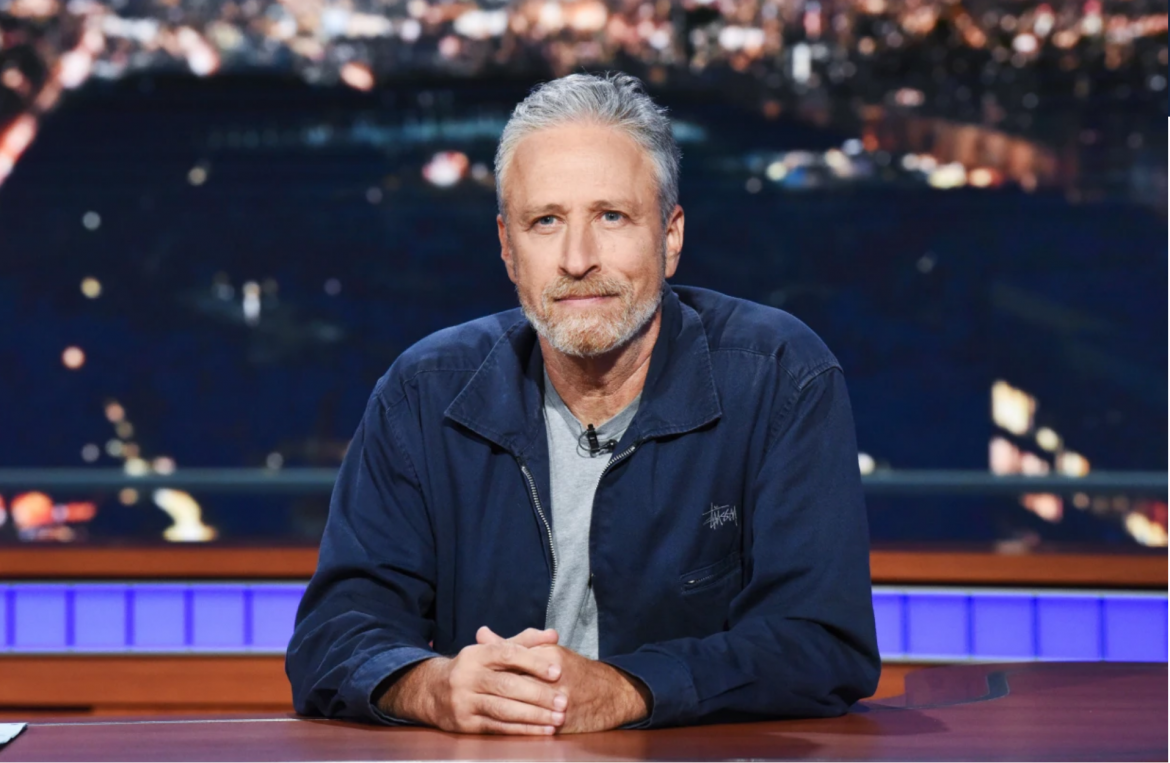Photo Credit: Getty Images
How Jon Stewart single-handedly turned politics into a satirical spectacle
Ethan Chan, Senior Staff Writer
“While celebrities can act as catalysts for positive political change, their political expressions can also alienate fans and further polarize the already divisive world of politics.” This sentence came straight from my previous opinion piece, where I discussed the dangers associated with the intersection of celebrities and politics. In general, the potential for misinformation among celebrities, coupled with their significant influence over the global population, raises concerns about their public involvement in political matters. Although the fusion of politics and celebrities can be precarious and potentially polarizing, one comedian has successfully bridged the gap between these two worlds, ultimately paving the way for more politically informed celebrities. His name is Jon Stewart.
For a span of 17 years, Jon Stewart’s The Daily Show served as a nexus where humour and satire converged with profound political insight, marking the first instance any late-night talk show host discussed politics. Stewart’s unique approach transcended mere entertainment; it demonstrated that humour can be a powerful tool for conveying complex political information. At the core of Stewart’s success was his ability to bridge the gap between comedy and serious political discussion, especially surrounding sensitive topics like 9/11. The Daily Show was more than just about delivering snarky punchlines. It allowed millions of people to engage critically with the world of politics.
Merging politics and comedy is complex because it requires celebrities to remain objective and hold both right- and left-leaning parties accountable. Without batting an eye, Stewart courageously critiqued both political factions, predominantly in the aftermath of 9/11, where he shared his personal connection to the attack to foster a sense of community among the audience. In fact, Stewart’s Crossfire interview post-9/11 held politicians accountable for their actions and statements by outing them to the eyes and ears of millions of viewers.
Although Stewart left The Daily Show in 2015, he has remained in the comedic spotlight. Stewart began an Apple TV+ show titled The Problem with Jon Stewart, where he continued challenging the current political landscape. However, his new show lacks the same impact as The Daily Show, with critics questioning whether his work building what they call a “political-celebrity landscape” was ultimately positive and balanced among the right- and left-leaning parties or too supportive of one political party. After hearing these critiques, Stewart acknowledged his platform as a medium, not a fact bank. Specifically, he recognized that his arguments are reflective of his own opinion and should spark active conservation rather than be interpreted as permanent political activism.
Overall, Jon Stewart’s legacy is one of a trailblazer who used his celebrity platform as a comedian to engage audiences with the complex world of politics. The Daily Show successfully challenged the norms of late-night television by changing how audiences consume political information and leading to the rise of Fallon, Kimmel, and Colbert — all of whom now discuss politics in their monologues. Despite stepping down from the The Daily Show, Stewart’s influence on the socio-political landscape continues to serve as a model for how celebrities can articulate their political views without fear of repercussions. This is achieved by posing tough questions, confronting harsh truths, and holding those in positions of power accountable, as opposed to complaining from the sidelines.




